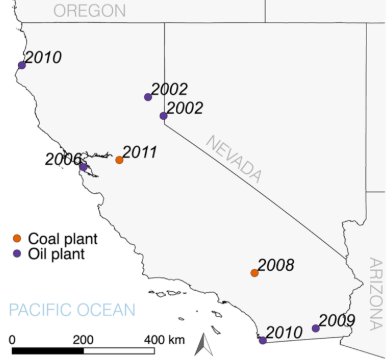Closure of fossil fuel plants in California associated with healthier babies
New research has found a clear correlation between the phasing out of fossil fuel power plants and improved public health.

New research has found a clear correlation between the phasing out of fossil fuel power plants and improved public health.
Academics from the University of California at Berkeley delved into public health records to assess what impact local power plant closures may have had on early birth rates.
Eight coal and oil plants closed in California between 2001 and 2011. The researchers found that those babies who were born too early dropped from 7 to 5.1 percent one year after these closures.
Preterm births, defined as between 32 and 37 weeks, are caused by health problems often linked to external factors.
The researchers expressed surprise that birth rates within 5km of the plants dropped by so much, but that the data remained consistent with similar research on the matter
The rates for African-American and Asian women fell further, from 14.4 to 11.3 percent.
“We were excited to do a good news story in environmental health,” said lead author Joan Casey. “Most people look at air pollution and adverse health outcomes, but this is the flip side: We said, let’s look at what happens when we have this external shock that removes air pollution from a community and see if we can see any improvements in health.”
The research highlights another benefit of making the transition to low-carbon and renewable forms of energy.
Pauline Mendola of the National Institute of Child Health and Human Development applauded the work, while pointing out that preterm births was “one of our most intractable health disparities.”
“Perhaps it’s time for the health of our children to be the impetus behind reducing the common sources of ambient air pollution. Their lives depend on it,” she added.
The paper was published in the American Journal of Epidemiology.
Fossil fuel closures in California between 2001 and 2011
Source: UC Berkeley



_-_frame_at_0m5s_400_250_80_s_c1.jpg)



